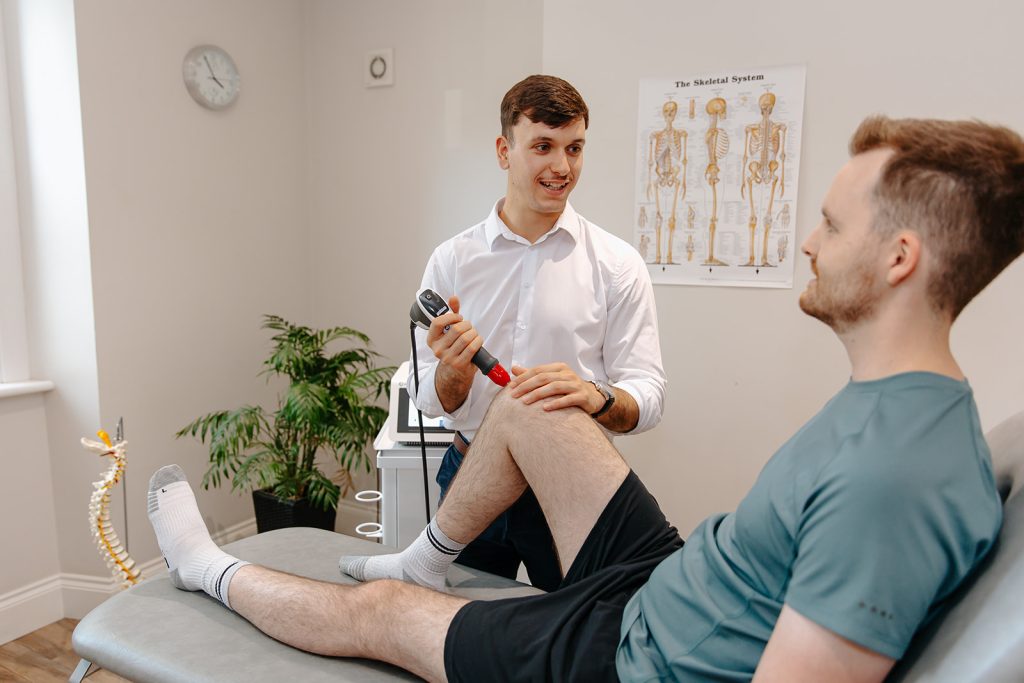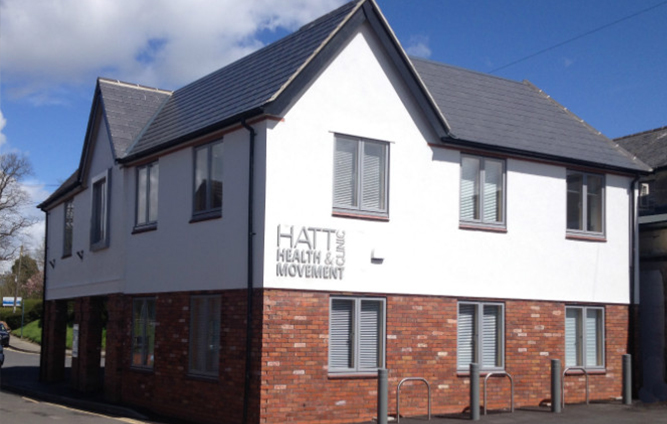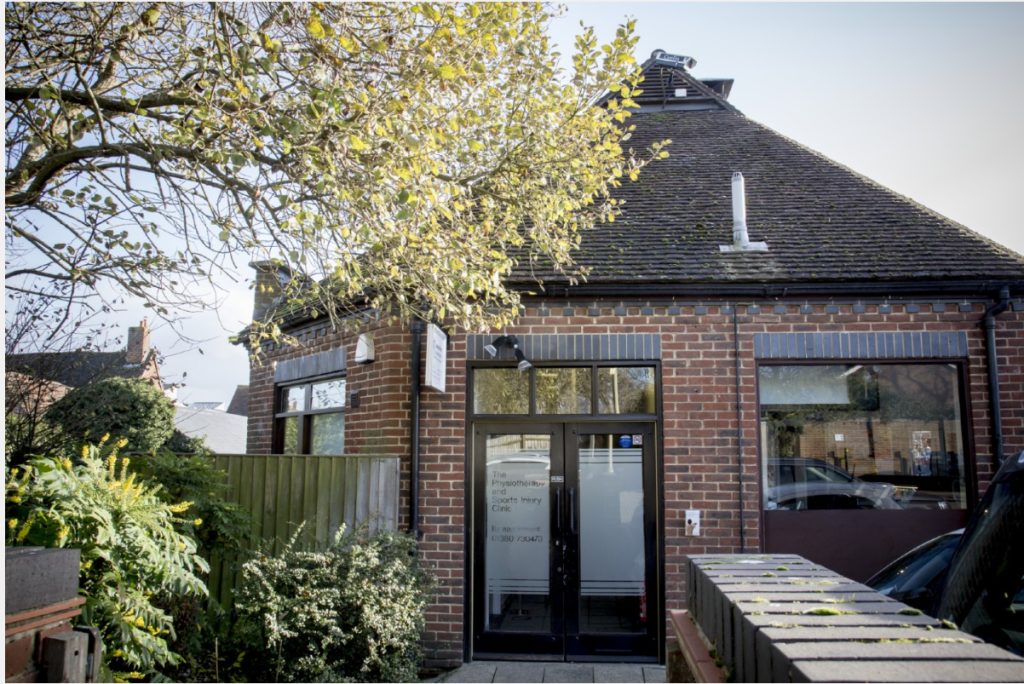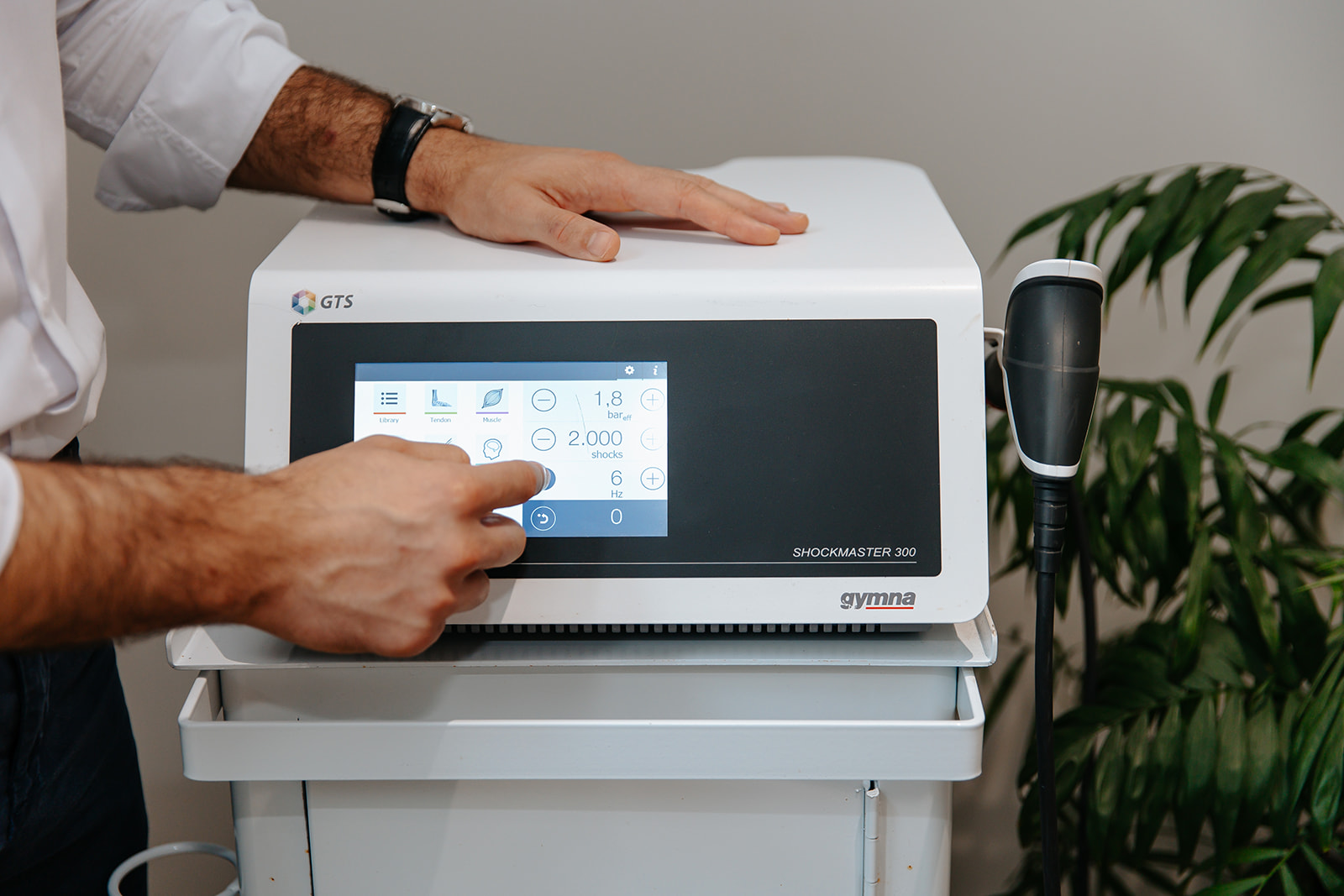
Shockwave
Shockwave Therapy Treatment at Hatt’s.
Are you suffering from chronic pain or injury that just won’t seem to go away? Shockwave therapy may be the solution for you. At Hatt’s, we offer state-of-the-art shockwave therapy treatment to help alleviate your pain and get you back to feeling your best.
- Advanced and effective treatment
- No after care required
- Non-surgical treatment
- Currently available in Devizes, Frome and Marlborough
Shockwave Therapy is currently considered to be one of the most effective treatments for chronic tendon disorders which is why we are proud to be one of the few clinics to offer this treatment locally.
Get ready to start your journey towards pain free living and improved mobility. Our experienced and knowledgeable team will assess your condition and create a personalised treatment plan to help you get back to living your life to the fullest. Book your appointment today at Hatt’s and see if shockwave therapy is right for you.
Book a consultation with one of our Physiotherapists.
To find out more about Shockwave Therapy or book an appointment, get in touch with our friendly team.
Our Clinics

Devizes
Visit us in our Devizes Clinic in Couch Lane.

Frome
Visit us in our Frome Clinic in Wallbridge.

Marlborough
Visit us in our Marlborough Clinic in Hughenden Yard.
Why choose Hatt’s for Shockwave Therapy?
At Hatt’s we know that each sports injury is unique. Our team of experts have decades of experience successfully treating a wide range of conditions.
With state-of-the-art technology and advanced shockwave therapy techniques, we are able to target the source of your pain and promote healing in a non-invasive way.
Unlike other treatments, shockwave therapy requires minimal after care or downtime, allowing you to continue with your daily activities without interruption. This non-invasive treatment option has been proven to be effective in treating a variety of chronic tendon conditions and musculo-skeletal pains.
Frequently Asked Questions
What is Shockwave Therapy?
Shockwave Therapy is used to treat ongoing tendon conditions such as Tennis elbow or Achilles tendinopathy. During treatment, a shockwave initiates an inflammatory response within the tissue. The body responds by increasing its blood flow and metabolism – helping to enhance the body’s healing capacity. Shockwaves have been shown to break down injured tissue and calcification within the tissue being treated.
What is involved in Shockwave Treatment?
Shockwaves are delivered to the injured tissue via a handpiece held by the clinician. It is non- invasive and no anaesthetic is required. Shockwave treatment will normally be delivered over 3 sessions – each lasting up to 15 minutes with ideally 1 week between each session. Shockwave always works best as a combination of treatment, and it is vital for any underlying bio-mechanical issues to be addressed at the same time; this may involve Gait Analysis and Rehabilitation.
What common conditions can be treated with Shockwave Therapy?
- Plantar fasciitis
- Achilles tendinopathy
- Medial tibial stress syndrome (shin splints)
- Patella tendinopathy (jumpers knee)
- Hamstring tendinopathy
- Greater trochanteric syndrome (hip pain)
- Tennis elbow
- Golfers elbow
- Calcified shoulder tendinopathy
If you aren’t certain as to whether you have one of the above conditions, our physiotherapy team can help you identify the cause of your pain and provide information on the best course of treatment.
Is Shockwave Therapy safe?
Shockwave therapy is a very safe procedure when performed by experienced clinicians at a specialised clinic.
While some patients may experience mild discomfort during the treatment, shockwave therapy is generally well-tolerated. The intensity of the shock waves can be adjusted to suit each individual’s pain tolerance level.
At Hatts, our clinicians are highly experienced in using shockwave therapy, ensuring that you receive safe and effective treatment for your condition.
What is the success rate of Shockwave Therapy?
Clinical evidence shows an overall success rate of 77% for long term conditions that have not resolved with other treatments. Whilst we expect great results from this treatment, there is a chance that the treatment may not improve your symptoms, so a review at 6 and 12 weeks post-treatment is recommended. If at this stage your symptoms have not resolved, you will be advised on alternative treatment options or your clinician may recommend diagnostic tests to understand why your pain hasn’t resolved.
Is the Shockwave treatment painful?
The inherent nature of Shockwave means there will be some discomfort during treatment. However, most people can manage their treatment session without any issues and continue with their normal activities immediately afterwards. In most cases you will experience a reduced pain level immediately after treatment which can last for up to 48 hours. However, in some cases you may experience some discomfort, and if so your therapist will be able to advise you on the best way to manage this. It is important that you do not start taking anti-inflammatory medication as this may interfere with the effectiveness of your treatment.
What shall I do if I am in pain after the Shockwave treatment?
If necessary, you can take over-the-counter pain killers. It is important that you do not take anti-inflammatory medication as this may interfere with the effectiveness of the shockwave treatment. Our Physiotherapy team will also be available 6 days a week should you need any support or advice during this time.
Who should not undergo Shockwave Therapy?
You should not undergo shockwave therapy treatment if you are/have:
- Pregnant/trying to convenience
- Under 18 years of age
- Epilepsy
- Pacemaker or another cardiac device
- History of blood clotting disorders
- Take blood thinners
- Unstable heart condition
- Tumour or infection in the area being treated
- Cancer
- Powered implant such as a nerve stimulator
- Taking certain types of antibiotics such as aminoglycosides or fluroquinolones
What precautions should I be aware of?
- Cortisone injections are not to be carried out within the last 12 weeks prior to Shockwave Therapy treatment
- You may experience minor bruising and swelling
- If you take warfarin or other anticoagulant therapy, please notify your clinician before having treatment
- If you have a cardiac pacemaker, please notify your clinician prior to treatment as Shockwave Therapy may interfere with this
- If you have been diagnosed with cancer or are pregnant, please notify your clinician as treatment should not be carried out
- If you have conditions clotting disorder such as Haemophilia, please notify your clinician as treatment should not be received
What are the side effects of shock wave therapy?
Shockwave therapy is generally a safe and effective treatment. But like most forms of treatment, there are some potential side effects to be aware of. These can include:
- Temporary increase in pain or discomfort
- Minor bruising and swelling
- Redness at the treatment area
- Numbness or tingling in the treated area
- Skin damage or infection (in rare cases)
- Tendon / fascia rupture (in rare cases)
Most side effects should resolve within a week before your next treatment.
Please consult with your physiotherapy team before undergoing therapy to ensure that it is the right treatment for you. Be sure to follow all precautions and guidelines provided to minimise any potential risks or side effects.
If you experience any unusual symptoms or have concerns during or after treatment, do not hesitate to contact our physiotherapy team for support and advice.

